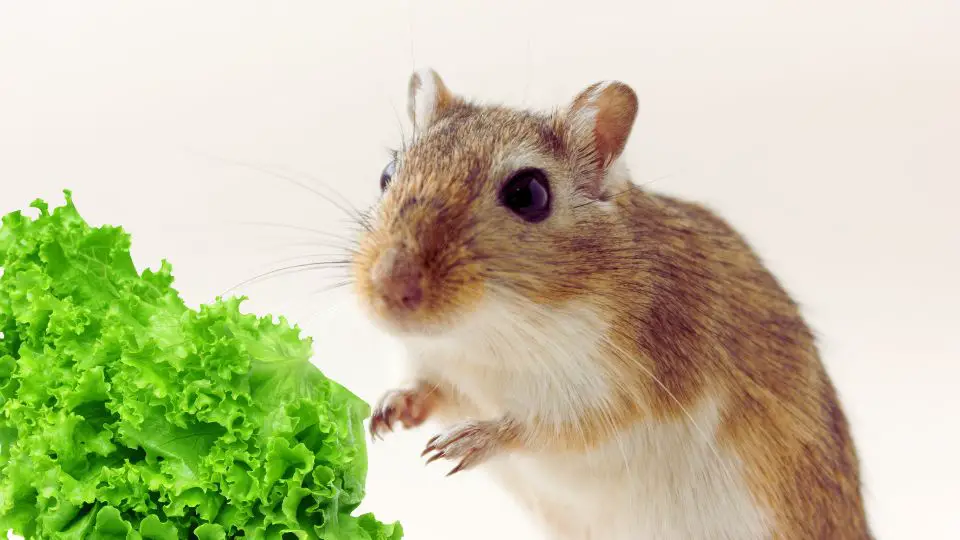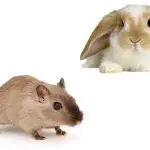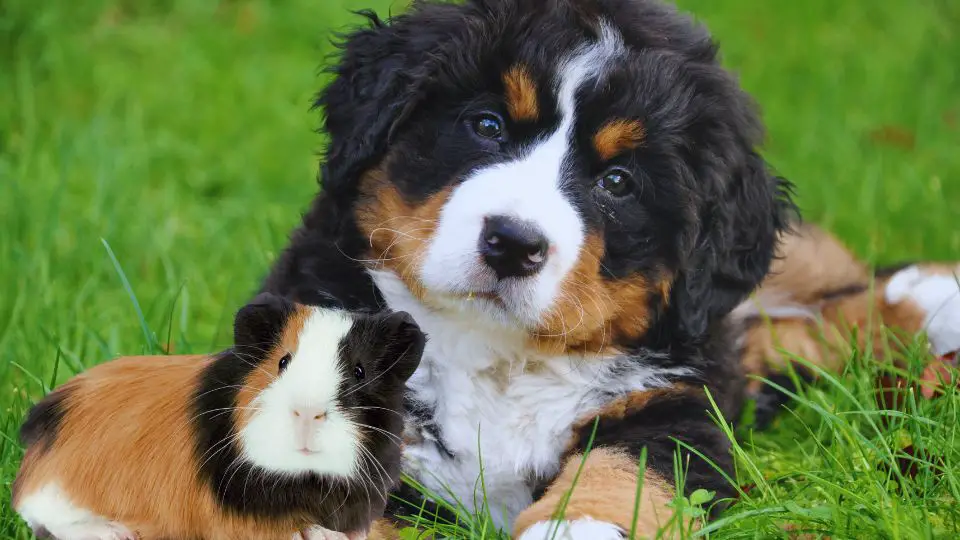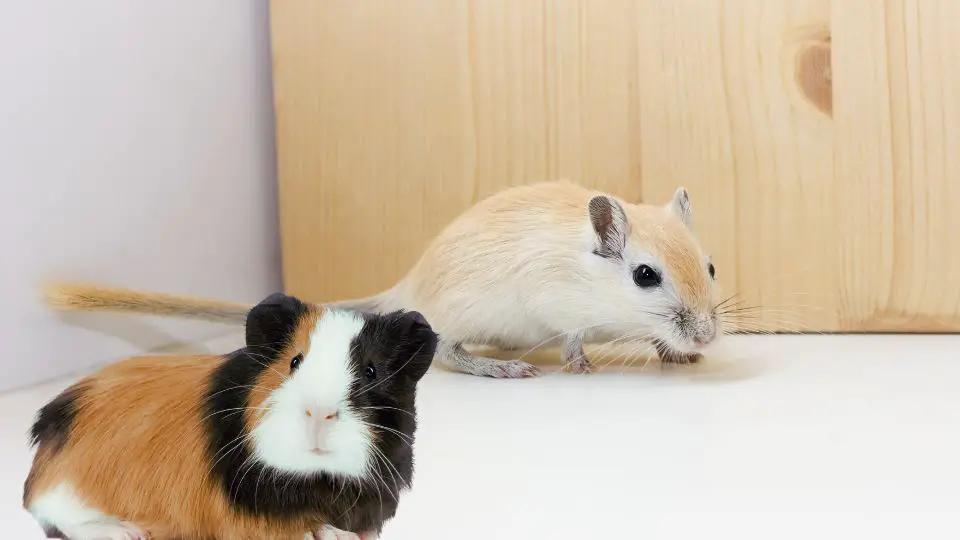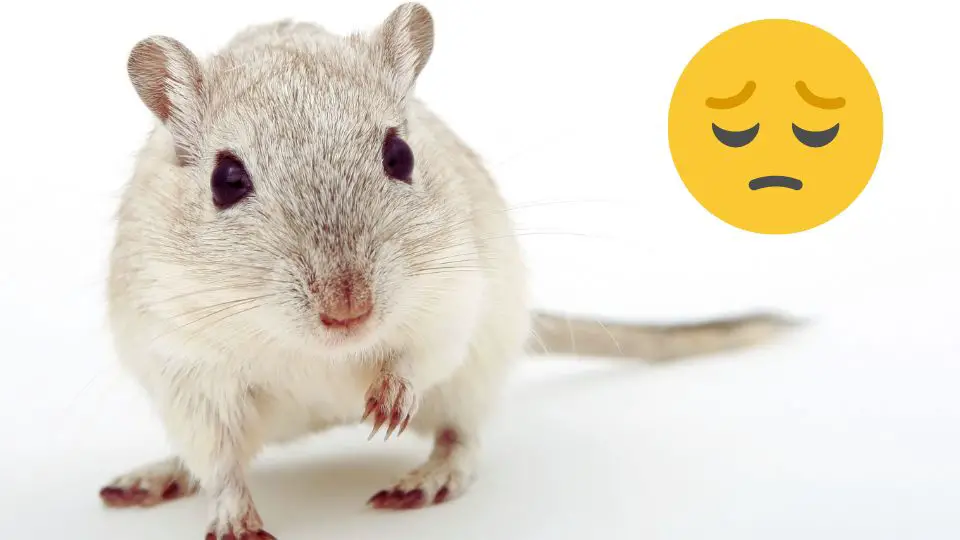When it comes to feeding our furry friends, it’s important to ensure their safety and well-being. Gerbils, being small and delicate creatures, have specific dietary needs that require careful consideration.
Yes, it is generally safe to feed gerbils lettuce. However, it’s important to choose suitable lettuce varieties such as romaine, green leaf, or red leaf lettuce. Thoroughly wash and remove excess moisture before serving. Monitor your gerbil’s digestive response and provide a balanced diet including other suitable foods.
In this article, we will address the question, “Is it safe to feed gerbils lettuce?” We will explore the potential benefits and risks of feeding lettuce to gerbils, helping gerbil owners make informed decisions about their pets’ diet.
Understanding Gerbil Nutrition
Gerbils are small rodents that have specific dietary requirements to maintain good health. Their diet should consist of a variety of foods to provide them with essential nutrients. A balanced diet helps support their growth, energy levels, immune function, and overall well-being.
To ensure your gerbil receives the necessary nutrients, it’s important to understand the key components of their diet. Here are the essential nutrients that play a vital role in a gerbil’s health:
- Protein: Gerbils require high-quality protein sources to support growth, muscle development, and tissue repair. Good sources of protein for gerbils include commercially available gerbil pellets, seeds, legumes, and small amounts of lean animal protein.
- Fiber: Fiber is crucial for maintaining healthy digestion and preventing constipation in gerbils. It aids in the proper functioning of their digestive system and helps prevent obesity. Hay, fresh vegetables, and some fruits are excellent sources of fiber for gerbils.
- Vitamins: Gerbils require various vitamins for optimal health. Vitamin A is essential for their vision and immune function. Vitamin D helps with calcium absorption and bone health. B vitamins are necessary for energy metabolism and overall well-being. Offering a varied diet that includes fresh vegetables, fruits, and commercially available gerbil food can help provide these essential vitamins.
- Minerals: Calcium and phosphorus are important minerals for gerbils, as they support bone health and muscle function. Offering a balanced diet that includes a variety of foods can help meet their mineral requirements. Avoid over-supplementing calcium, as excessive amounts can lead to health issues.
- Water: Access to fresh, clean water is essential for gerbils to stay hydrated. Provide a water bottle or water bowl that is changed daily to ensure a constant supply of fresh water.
Is It Safe to Feed Gerbils Lettuce?
Yes, it is safe to feed gerbils lettuce, but it’s worth mentioning that lettuce should be offered as part of a balanced diet that includes other suitable foods for gerbils.
Variety is key to meeting their nutritional needs, and a diet solely based on lettuce can lead to nutritional deficiencies. Fresh hay, gerbil pellets, seeds, and occasional small amounts of fruits and vegetables can help provide a well-rounded diet for your gerbil.
Lettuce and its Nutritional Value
Lettuce, regardless of the variety, is known for its low calorie content and high water content, making it a hydrating choice. While lettuce is not a significant source of protein or fat, it provides various vitamins and minerals, including:
- Vitamin A: Lettuce contains beta-carotene, which is converted to vitamin A in the body. Vitamin A is essential for vision, immune function, and cell growth.
- Vitamin K: Lettuce is a good source of vitamin K, which is important for blood clotting and bone health.
- Folate: Lettuce contributes to a gerbil’s folate intake, which is important for cell growth and development.
- Water and Fiber: Lettuce’s high water content helps with hydration, while its fiber content aids in healthy digestion.
We recommend introducing lettuce gradually to your small pet and observe your gerbil’s response to ensure it agrees with their digestive system.
Types of Lettuce Commonly Available
- Romaine Lettuce: Romaine lettuce is a crisp and nutrient-dense variety with long, sturdy leaves. It is a popular choice among gerbil owners due to its high fiber content and moderate water content. Romaine lettuce provides a satisfying crunch and is widely available in grocery stores.
- Green Leaf Lettuce: Green leaf lettuce has tender, loosely packed leaves and a mild flavor. It is a good source of vitamins and minerals, making it a nutritious option for gerbils. Green leaf lettuce is often included in mixed salad greens and can be found in many supermarkets.
- Red Leaf Lettuce: Red leaf lettuce, with its vibrant red or maroon leaves, adds visual appeal to meals. It is similar in nutritional content to green leaf lettuce and provides vitamins and minerals. Red leaf lettuce is commonly available in grocery stores and farmers’ markets.
- Butter Lettuce: Butter lettuce, also known as Bibb or Boston lettuce, has soft, buttery leaves with a delicate flavor. While it is lower in fiber compared to other lettuce varieties, it still offers valuable nutrients. Butter lettuce is often used in salads and can be found in many supermarkets.
Potential Risks and Considerations
While lettuce can offer some nutritional benefits, it’s important for gerbil owners to be aware of potential risks and considerations when incorporating it into their pets’ diet.
Digestive Issues in Gerbils
Gerbils have sensitive digestive systems, and certain foods can cause digestive issues. While lettuce is generally safe for gerbils, some individuals may have difficulty digesting it. Introduce lettuce gradually into their diet, observing any signs of digestive discomfort such as diarrhea or bloating. If these issues occur, it may be best to avoid or limit lettuce consumption.
Potential Dangers of Certain Lettuce Varieties
Not all lettuce varieties are safe for gerbils. Iceberg lettuce, for example, has a high water content but lacks significant nutritional value. It also contains a compound called lactucarium, which can be harmful in large quantities. Avoid feeding iceberg lettuce to gerbils and opt for safer options such as romaine lettuce, green leaf lettuce, or red leaf lettuce, which offer better nutritional content.
Impact of Pesticides and Herbicides
Another consideration when feeding lettuce to gerbils is the potential presence of pesticides and herbicides. Conventionally grown lettuce may be treated with these chemicals, which can be harmful to gerbils. Whenever possible, choose organic lettuce or thoroughly wash conventionally grown lettuce to reduce potential pesticide exposure. It’s important to prioritize the safety and well-being of your gerbil by providing the cleanest and safest food options.
Safe Lettuce Options for Gerbils
Here are our recommendations of lettuce varieties that we consider suitable for gerbils:
- Romaine Lettuce: Romaine lettuce is an excellent choice for gerbils due to its high fiber content and moderate water content. It provides valuable nutrients without excessive moisture, making it a safe and nutritious option for gerbils.
- Green Leaf Lettuce: Green leaf lettuce is another suitable choice for gerbils. It has tender leaves and a mild flavor, offering a variety of vitamins and minerals. Gerbils can benefit from the nutritional content of green leaf lettuce without encountering excessive water intake.
- Red Leaf Lettuce: Red leaf lettuce, with its vibrant color and slightly stronger flavor, can also be included in a gerbil’s diet. It provides similar nutritional benefits to green leaf lettuce and adds visual variety to their meals.
Proper Preparation and Serving Guidelines
- Wash Thoroughly: Before serving lettuce to your gerbil, it’s essential to wash it thoroughly to remove any potential pesticides, herbicides, or bacteria. Rinse the lettuce leaves under cool running water and gently pat them dry with a clean cloth or paper towel.
- Remove Excess Moisture: Gerbils are susceptible to digestive issues if they consume excessively watery foods. After washing the lettuce leaves, gently shake off any excess water or pat them dry to minimize moisture content.
- Offer in Moderation: While lettuce can be a healthy addition to a gerbil’s diet, it should be offered in moderation. Aim to provide small amounts of lettuce as part of a varied and balanced diet that includes other suitable foods for gerbils, such as fresh hay, gerbil pellets, and occasional fruits and vegetables.
- Monitor Digestive Response: Each gerbil may have unique dietary sensitivities. Introduce lettuce gradually into their diet and observe their digestive response. If you notice any signs of digestive discomfort, such as diarrhea or bloating, it may be best to reduce or eliminate lettuce from their diet.
- Freshness and Storage: Ensure that the lettuce you offer to your gerbil is fresh and free from any signs of spoilage. Store lettuce properly in the refrigerator to maintain its freshness, and discard any wilted or spoiled leaves.
FAQ
What foods are toxic to gerbils?
Gerbils have specific dietary needs and certain foods can be toxic to them. Foods that are toxic to gerbils include chocolate, caffeine, alcohol, onions, garlic, citrus fruits, and high-sugar or high-fat foods. It’s important to provide a balanced diet of gerbil-safe foods to ensure their health and well-being.
Is it OK to eat rusty lettuce?
Rusty lettuce, or lettuce with brown or rust-colored spots, is not ideal for consumption. These spots can indicate decay or mold growth, which may be harmful to both humans and gerbils. It’s best to discard rusty lettuce and opt for fresh, crisp lettuce for both you and your gerbil.
Is lettuce bad if it turns pink?
Lettuce turning pink can be an indication of bacterial growth or spoilage. Pink discoloration may suggest the presence of harmful bacteria and can be unsafe for both humans and gerbils. It’s advisable to avoid consuming or feeding pink lettuce to gerbils and choose fresh, healthy lettuce instead.
Is a little brown on lettuce OK?
A little brown on lettuce is generally safe to consume for humans and gerbils. It usually indicates slight oxidation or aging but does not necessarily pose a health risk. However, it’s always best to use your judgment and discard lettuce that appears excessively brown or shows signs of decay.
Do gerbils carry salmonella?
Gerbils can carry salmonella, a type of bacteria that can cause food poisoning in humans. While the risk of transmission is generally low, it’s essential to practice good hygiene when handling gerbils or their habitat. Wash your hands thoroughly after touching gerbils or cleaning their cage to minimize the risk of bacterial transmission.
Conclusion
In conclusion, the safety of feeding lettuce to gerbils depends on several factors. Lettuce can be a nutritious addition to a gerbil’s diet when chosen and prepared correctly. Safe lettuce options, such as romaine lettuce, green leaf lettuce, and red leaf lettuce, offer valuable nutrients without excessive moisture. Proper preparation, including thorough washing and removal of excess moisture, ensures the lettuce is safe for consumption.

